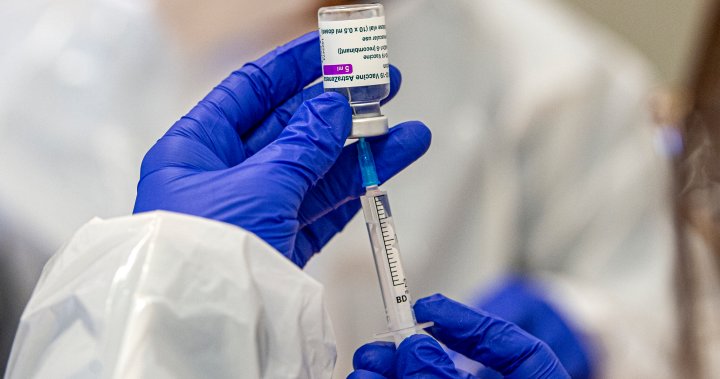Concerns about coronavirus variants are rising as vaccines continue to roll out across Canada.
Infectious diseases physician Dr. Sumon Chakrabarti recently joined The Morning Show to discuss current COVID-19 news.
Health Canada and the World Health Organization recently said there was no link between the Oxford-AstraZeneca coronavirus vaccine and developing blood clots. This comes as some countries in Europe suspended its use.
“It’s important for us to keep monitoring, but right now there doesn’t seem to be a link between clots and the vaccine itself,” he says.
Read more:
Ontario data shows coronavirus case declines levelled off, postponed procedures pose major concern
An expert panel warned Ontario on Thursday of a potential third wave, after rising case numbers and concerns over coronavirus variants.
In the Ontario government’s latest modelling data, the province could hit up to 8,000 cases per day by April in the worst-case scenario.
[ Sign up for our Health IQ newsletter for the latest coronavirus updates ]
Chakrabarti says the next few weeks across the country will be crucial, but we should still keep in mind that vaccines are rolling out and most residents of long-term care homes have been fully vaccinated.
“Even if you do have a lot of cases, the number of hospitalizations is going to be less — we still have to be careful, we still have to prepare for this — but with less hospitalizations, it’s less impact to the community,” he says, adding that the government doesn’t necessarily have to increase restrictions or go into lockdown.
“I’m hoping for the best but we do have to prepare,” he says.
In Alberta, a rapid-testing pilot project is heading to select schools, seniors facilities and food processing plants.
Chakrabarti says rapid testing should be used in ongoing high-risk settings and it can be a great tool in public health and prevention. Rapid testing has the ability to do a quick screen on people and potentially break chains of transmission, he adds.
“Even though it might not catch every positive case, it is very good at catching people who are at the height of their infectivity.”
In B.C., outdoor gatherings of up to 10 people are now allowed.
Chakrabarti says this is perfectly fine and as the weather gets nicer, people need to be offered something to do that is safe.
“We know that outdoor transmission is extremely safe. There’s very few described cases coming from outdoor transmission.”
On Thursday, U.S. President Joe Biden announced a plan to make all adults vaccine-eligible by May 1 and spoke of a return to near normalcy by July 4 — U.S. Independence Day.
Chakrabarti says though Canada is behind on rollouts, the country will get there eventually.
“I do think the summer is going to be quite a bit different — in a good way — than it was last year. The virus is going to be around but I do think that our vaccine program certainly has begun to accelerate.”
He adds that by the end of the summer and early fall, we’ll be closer back to “normal.”
For more information on current COVID-19 news, watch the full video above.
© 2021 Global News, a division of Corus Entertainment Inc.


